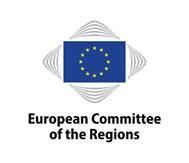Reflecting on the future of Europe: consultation at the grassroots is as crucial as the final outcome

Following the Rome Treaty's 60th anniversary celebrations and the publication of the European Commission's White Paper on the Future of Europe , members of the Committee of the Regions' Commission for Citizenship, Governance, Institutional and External Affairs (CIVEX) debated yesterday the issues at stake in the elaboration of a new vision for Europe, from the perspective of regions and cities. Participants to the debate, including European Commission representatives, insisted that the consultation process was as essential as the final outcome and that cities and regions were crucial in driving this wide-ranging exercise forward.
As part of the ongoing political reflection on the future of Europe, European Council president Tusk has asked the CoR to send its recommendations on the future of Europe through the voice of cities and regions. The CoR position will draw from a wide-ranging consultation process called "Reflecting on Europe ", mostly in the form of citizens' dialogues and town hall debates, to collect citizens' concerns and expectations at the grassroots. The opinion, whose adoption is planned for mid-2018, will be prepared by CoR President Markkula and First Vice-President Lambertz. Yesterday's debate aimed at taking stock of the preparatory process, discuss the latest input from the European Commission, and encourage CoR members to further engage in citizens' dialogues in their constituencies. In a second request, the European Commission has invited the CoR to draft an Outlook Opinion, based on the White Paper, and the ideas and priorities of Europe's regions and cities for the future development of our Union.
Opening the debate, Karl-Heinz Lambertz shared his views on the nature of the CoR's "Reflecting on Europe" campaign and how it needs to be conducted: " 'Reflecting on Europe' is not a large-scale public survey, nor another campaign on the achievements of the European project. It is a real dialogue, a will to multiply the debate, mobilize and elaborate together concrete actions with the citizens. We're not just listening, we are conversing. That is why the process is as important to me as its formal outcome - the adoption of a joint resolution in 2018. This is also why your full participation, as local and regional elected representatives, is an absolute prerequisite to the success of the project".
Mr Lambertz also warned about concerns in the current debate on the future of Europe: " I see three main dangers: first, that we focus all our energy on a 'divorce' that we have not chosen and that the Brexit process undermines our European ambitions; second, that the cohesion between our territories and our people is considered as incidental; third, that the debate on a multi-speed Europe actually hides a debate on a multi-directional Europe and takes us all away from such a hard-won common good. "
The next steps will need to be adapted to the ongoing and upcoming developments of the inter-institutional debate, including the recent European Commission's White Paper on the future of Europe . In this regard, a representative from President Juncker's Cabinet commented on the content of the White paper, referring to the fact that, beside the five proposed scenarios, the final outcome may well see a sixth scenario built from the output of the debate. He further insisted that "the future of the EU lies in cities and regions" as these are the level of government citizens are the most familiar with.
A representative from the European Commission's DG Communication also presented the main conclusions of the last Eurobarometer surveys under the three following aspects: trust in the institutions, trust in the media, and rise of populism. He stressed that the results show a generalised loss of trust in the institutions, a trend that is not specific to the EU, but that, on the other hand, citizens' trust towards local and regional authorities remains the highest. In this perspective, he called on the CoR members, in their quality as local and regional elected representatives, "to help in animating the current debate on the future of Europe".
This discussion with the European Commission representatives supplements the debate with MEPs Guy Verhofstadt, Elmar Brok and Jo Leinen, which took place during the March Plenary Session. Moreover, it will feed into a debate with European Parliament's President Antonio Tajani on the future of Europe, to be held during the CoR plenary session on 11 May. The European Commission's White Paper on a new direction for Europe will also be on the agenda of the next plenary with a debate with Commission's Vice-President Jyrki Katainen.
***
CoR "Reflecting on Europe" initiative
The CoR initiative to consult European citizens directly at the grassroots has already been up and running with 27 local events organised by the CoR, its members and local and regional partners, in 13 EU countries in 2016, with an overall participation of over 3,200 citizens. This exercise is being intensified throughout 2017 with about 100 local events to be further organised across the EU.
A debate on the different aspects of the "Reflecting on Europe" exercise will be organised in every forthcoming plenary session and CIVEX commission meeting. CIVEX will also organise a conference on the "Future of Europe" as part of its external meeting in Caen (France) on 21-22 September.
The CoR is also to launch a public web-based application, including a number of questions related to the future of EU policies, that will be used to collect and present citizens' feedback during local events and citizens' dialogues.
Contact:
Nathalie Vandelle
Tel. +32 (0)2 282 24 99
nathalie.vandelle@cor.europa.eu